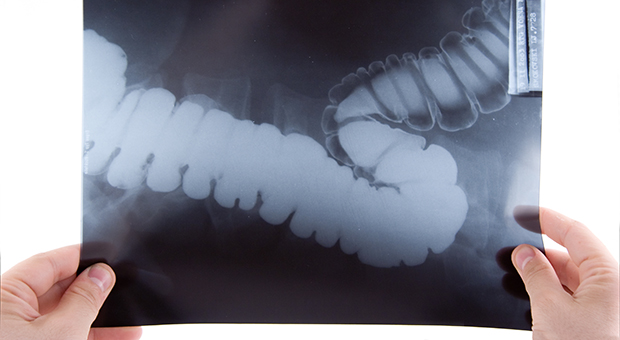The Medical Minute: Colon cancer prevention

Former President Ronald Reagan, Katie Couric's husband Jay Monahan, and baseball player Darryl Strawberry all shared a common malady. Each was diagnosed with colon cancer, with no known risk factors for the disease. Colon cancer is diagnosed in approximately 150,000 Americans per year. Males and females are equally affected and about one-third of all people with this diagnosis will die from the disease.
“Although these are sobering statistics, the good news is that half of these deaths could be prevented through screening,” says Joel Haight, MD, medical director of Penn State Hershey Endoscopy Center in State College. “Screening is a way to remove polyps before they become cancerous and to find cancer at a treatable stage in average-risk people.”
Sadly, less than one-half of people over age 50 have ever had any form of screening in their lifetime. The American Cancer Society provides screening guidelines for average-risk people beginning at age 50:
- Annual blood test and sigmoidoscopy every five years: The blood testing detects blood in the stool that is not visible to the naked eye. A sigmoidoscopy involves passage of a flexible tube through the rectum and lower third of the colon or large intestine. It is usually done in five minutes without sedation following a limited bowel cleansing.
- Colonoscopy every 10 years: A flexible tube is passed throughout the entire colon or large intestine for 15-30 minutes with sedation following a thorough bowel cleansing. This allows for polyp removal or biopsy at the time of exam.
- Double contrast Barium Enema every five to 10 years: X-rays are taken of the colon after instilling air and contrast material through a tube in the rectum. This takes 15-30 minutes without sedation after a thorough bowel cleansing.
“Most cancers found early enough to potentially cure often produce no symptoms,” said Dr. Haight. “Therefore everyone should be screened. However, talk to your doctor if you experience abdominal pain, blood in or on the stool, change in typical bowel habits, weight loss, anemia (low red blood cell count), or change in stool character, shape or caliber. These may be signs of colon cancer.”
Conditions that are known to increase risk for colon cancer may require more frequent or more aggressive testing:
- Personal or family history of colon cancer or polyps
- Familial adenomatous polyposis syndrome
- Hereditary non-polyposis colon cancer syndrome
- Ulcerative colitis / Crohn's disease
Since January 1, 1998, Medicare has covered preventive colon cancer screenings. Most other insurance carriers cover screening costs depending on risk factors and screening methods used. Talk to your insurance company about your individual coverage and see a gastroenterologist for a colon cancer screening.
“With proper colon cancer screening and treatment, health providers could save about 35,000 lives every year.”
>> Learn more about colon cancer prevention in this podcast with Dr. Thomas McGarrity of Penn State Hershey Medical Center.
The Medical Minute is a weekly health news feature brought to you by Penn State Milton S. Hershey Medical Center. Articles feature the expertise of Penn State Hershey faculty physicians and staff and are designed to offer timely, relevant health information of interest to a broad audience.
Next Week: NSAIDs can be an excellent treatment for joint pain and minor injuries—if taken properly.
If you're having trouble accessing this content, or would like it in another format, please email Penn State Health Marketing & Communications.
